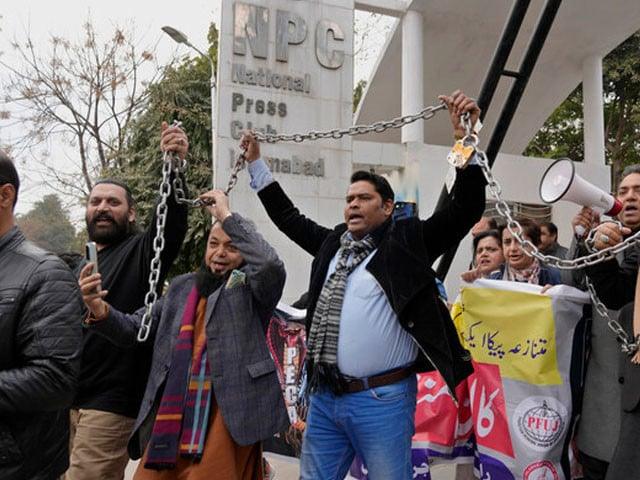Pakistan Federal Union of Journalists (PFUJ) filed a request before the High Court of Islamabad contesting the recent amendments to the country’s cybercrime law, calling for their “unconstitutional”.
The Pakistan Electronic Crimes (amendment) Act, 2025, promulgated on January 29, introduces provisions that make the dissemination of “false or false” information “a criminal offense, punishable by a sentence of up to three years in prison, without A clear definition of what constitutes “false” new.
Journalists and digital rights experts expressed their concern about the lack of consultation when writing the bill, arguing that it stifles public control and undermines fundamental rights.
They also underlined the large powers granted to government organizations under amendments to regulate online content, which could lead to an increase in censorship.
The changes establish four new government organizations with the power to block and delete online content on the basis of vague criteria, which prompted human rights organizations like Amnesty International and Human Rights Watch to raise concerns about the potential violations of international human rights law.
The request of the pfuj to the court argues that the modified law violates the constitutional guarantees, in particular a regular procedure and the rights of fair trial.
He seeks to prevent the government from using “coercive powers” against journalists under the new law, listing several government agencies as respondent, notably the Ministry of the Interior, the Ministry of Information and the Federal Agency survey (FIA).
Under the changes, a new court of social media protection will be formed with members appointed by the government, which raises concerns about the independence of the body.
Another organization, the authority for the protection and regulation of social media, will be able to order the withdrawal or blocking of the content deemed “against the ideology of Pakistan” or “false or false”, as well as to impose Conditions for social media societies.
The changes were introduced in the midst of increasing concerns concerning the repression of digital speech in Pakistan, in particular frequent internet closures and a limitation of networks. The government has also worked on the implementation of a national firewall, despite the denials that the movements are aimed at censorship.




